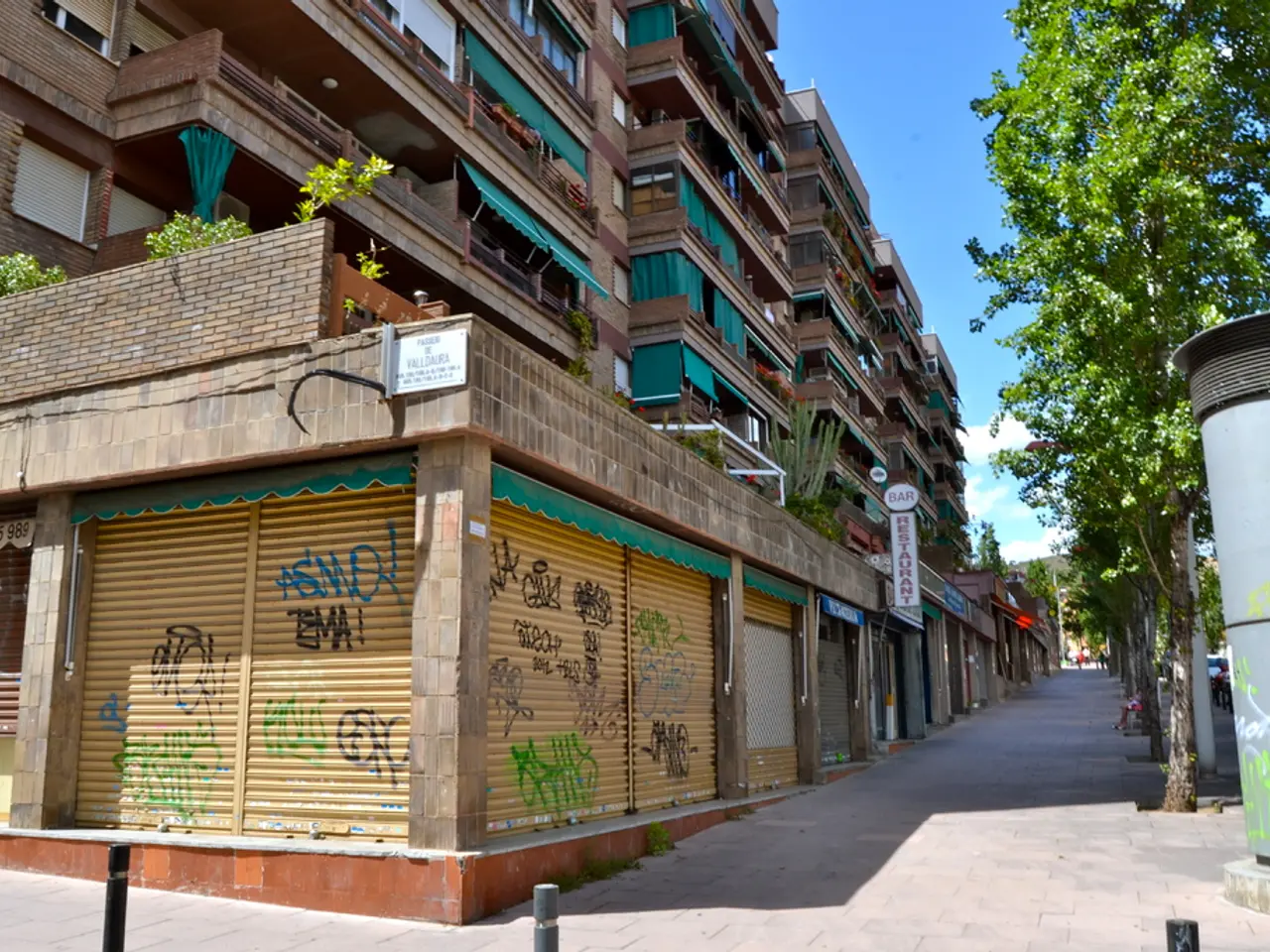Public Space for Everyone - Originated from a Visionary Idea
A Renewed Leaf of History: The Kaisergarten in Oberhausen
The Kaisergarten in Oberhausen, a historic public park dating back to the early 20th century, has recently undergone a comprehensive transformation, blending its rich past with modern amenities.
Originally conceived as a visionary project offering relaxation, nature, and community to the working people, the park has retained its role as a cherished local destination. Over the years, it has evolved from a floodplain forest along the Emscher into a spacious layout with paths, meadows, water, and forest.
The park's history is not without its trials. The playful fountain featuring a bronze group of a boy, newt, frog, turtle, and dolphin, which was erected in 1906, was stolen and melted down several times during World War I. Today, an edelstahl crown marks the former location of the fountain, symbolising the name and artistic significance of the park. Beneath this steel crown lies the original basin of 1906, a hidden gem of the city's history.
The Park House Oberhausen, built in 1903 with financial help from the Gutehoffnungshütte and a municipal subsidy, served as the social hub of the park. Equipped with modern steam heating and cooling facilities for meat and beer, it was a popular gathering spot for the community.
The Kaisergarten underwent extensive renovation and ecological enhancement, costing 3.7 million euros. The renovation, jointly funded by the country, the EU, the city of Oberhausen, and the Emschergenossenschaft, aimed to restore the park's natural beauty while making it more accessible to visitors.
DTP Landscape Architects GmbH, a renowned planning office based in Essen, significantly shaped the Kaisergarten renovation with their design concept. The desilting of the ponds was a central part of the renovation.
Mayor Klaus Wehling expressed satisfaction with the renovation results, noting his personal memories of the park. NRW Environment Minister Michael Groschek even compared the Kaisergarten to Central Park, praising its transformation.
Jochen Stemplewski, CEO of the Emschergenossenschaft, warned against feeding ducks in the park due to its negative impact on water quality.
Today, the Kaisergarten continues to be a protected landscape that has been a part of the city since the late 19th century. It offers a variety of family-friendly activities, such as playgrounds and seasonal events like Easter with games and food, as well as cultural programs. The park remains free to access and is frequently highlighted in social media for nature walks and leisure outings in Oberhausen.
In conclusion, the Kaisergarten started as a historic urban park, experienced phases of restoration, and currently functions as a maintained nature and recreation area in Oberhausen popular among families and visitors. Its rich history, coupled with its modern amenities, makes it a unique and cherished destination in the city.
References: [1] Oberhausen's Kaisergarten undergoes renovation [2] Kaisergarten Oberhausen: A Green Oasis in the Heart of the City [3] Exploring the Kaisergarten in Oberhausen
The renovated Kaisergarten, with its blend of historical charm and modern amenities, has expanded its offerings to encompass a sustainable living and home-and-garden lifestyle, presenting an opportunity for visitors to immerse themselves in a greener, more eco-friendly environment. Encouraging responsible actions such as not feeding ducks, visitors can contribute to maintaining the park's water quality and promoting sustainable living.




